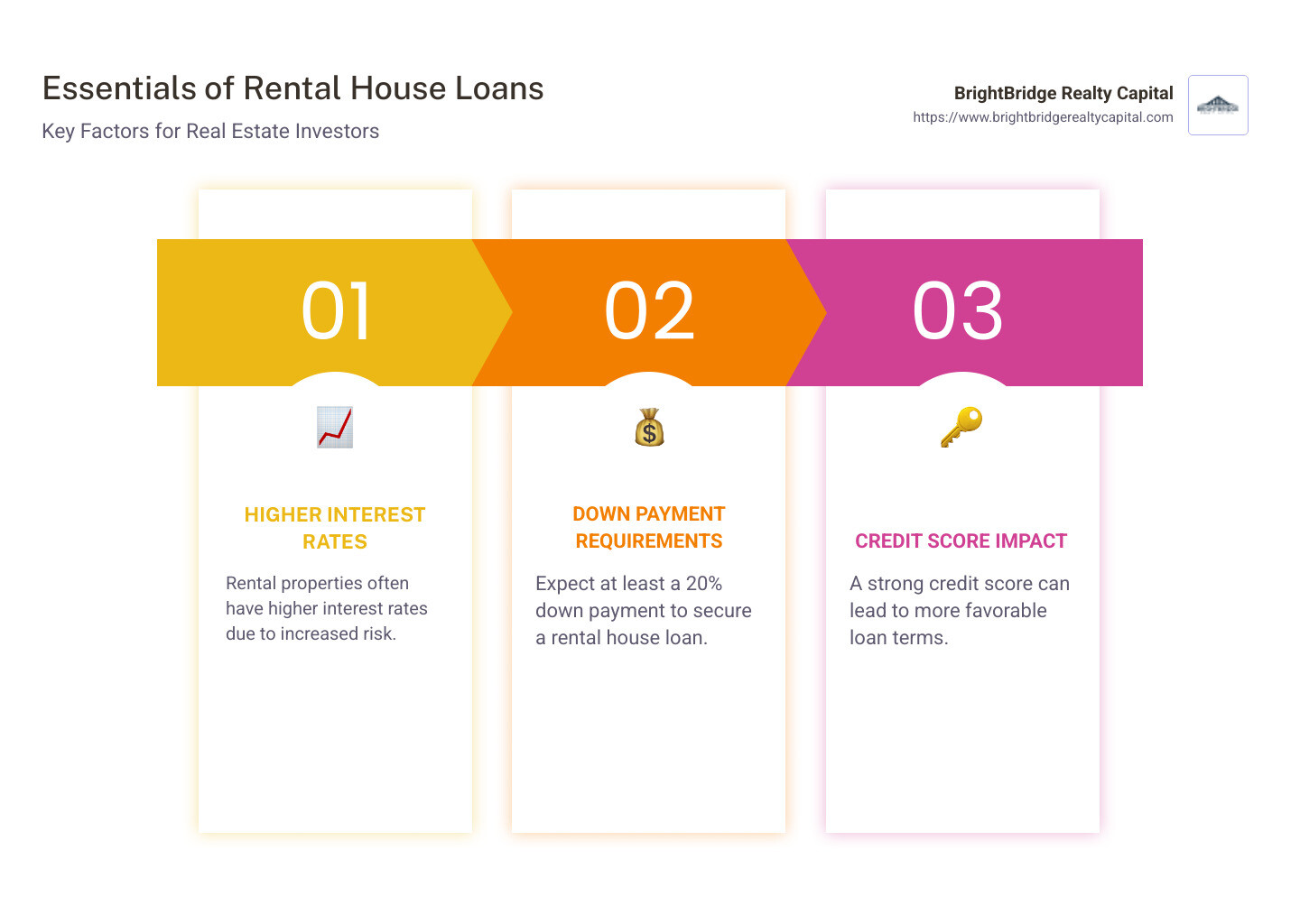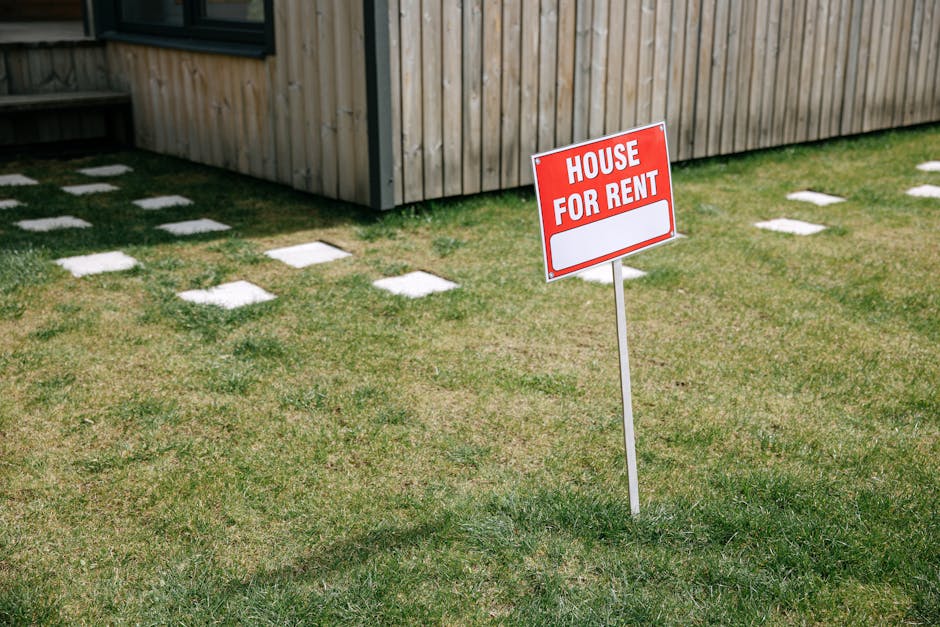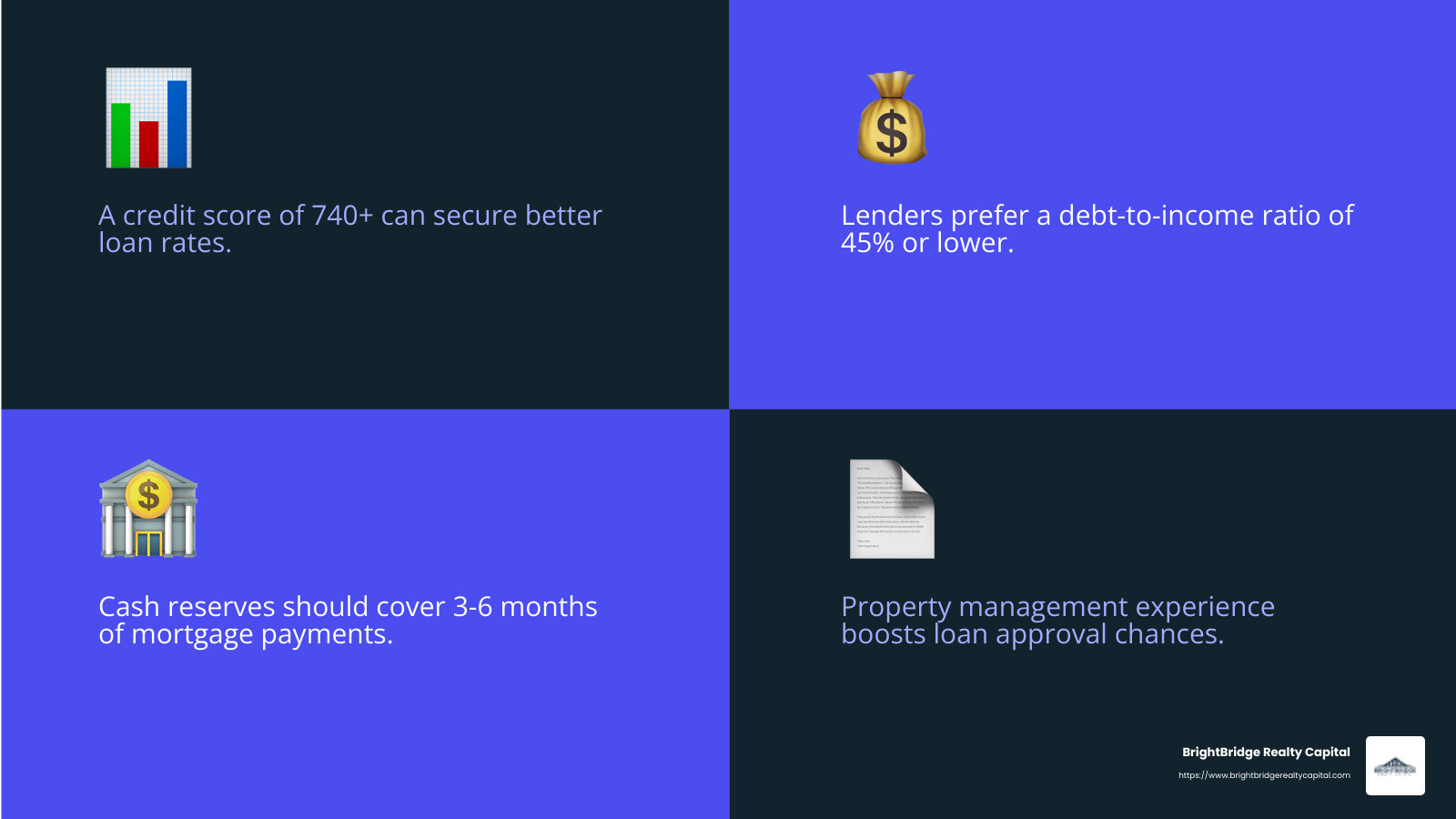The Ultimate Guide to Securing a Loan for Your Rental House

Rental house loan opportunities provide a path to building long-term wealth through real estate investment. These loans open up the door to securing properties that can yield steady rental income and have the potential to appreciate over time. Understanding how to steer the process of obtaining a rental house loan is crucial for any serious real estate investor looking to expand their portfolio efficiently.
Here’s a quick summary of the essentials you should know before diving deeper into rental property financing:
- Higher Interest Rates: Rental house loans often come with higher interest rates compared to primary residences due to higher risk.
- Down Payment Requirements: Expect a down payment of at least 20%, which can signal your commitment and may lower your interest rate.
- Credit Score Impact: A strong credit score improves your chances for favorable loan terms.
- Loan Types: Various options like conventional loans, portfolio loans, and even VA loans for eligible individuals offer flexibility.
In today's competitive market, being equipped with the right knowledge sets the foundation for seizing investment opportunities swiftly and effectively. Let's dig into what makes rental house loans an indispensable tool for real estate investors.

Rental house loan word list:
- 30 year rental property loans
- getting a line of credit on a rental property
- refi rate for rental property
Understanding Rental House Loans
Investing in a rental property can be a wise financial move, but understanding the ins and outs of a rental house loan is essential. Here's what you need to know:
Investment Property
Owning an investment property, like a rental house, is different from owning a primary residence. Lenders see these properties as riskier. Why? Because if financial trouble arises, borrowers are more likely to default on investment properties than their homes. This perception influences the terms and requirements of rental house loans.
Mortgage Rates
Expect higher mortgage rates for rental properties. These rates are typically 0.5% to 0.75% higher than those for primary residences. The increased rate compensates lenders for the extra risk. However, interest payments on these loans can often be deducted from your taxes, which might help offset some costs.
Down Payments
Down payments for rental properties are generally higher. A typical requirement is at least 20% of the property's purchase price. Putting more money down reduces the lender's risk and can sometimes lead to better loan terms. Plus, a down payment of 20% or more means you won't have to pay for private mortgage insurance (PMI).
Credit Requirements
Your credit score plays a crucial role in securing a rental house loan. A minimum score of 620 is often required, but higher scores are needed for the best rates. Lenders also consider your debt-to-income (DTI) ratio. Keeping your DTI below 36% improves your chances of approval and better loan terms.
Understanding these key elements of rental house loans helps position you for success in the real estate market. With these insights, you're better prepared to steer the complexities of securing financing for your investment property. Next, we'll explore the various types of loans available to real estate investors.
Types of Rental House Loans
When it comes to financing a rental property, there are several rental house loan options to consider. Each type has its own benefits and requirements. Let's break them down:
Conventional Loans
Conventional loans are the most common choice for real estate investors. They don't require you to live in the property, making them ideal for rental houses. However, they typically require a higher down payment, usually starting at 20%, and a good credit score. The interest rates can be competitive, but they depend heavily on your creditworthiness.
FHA Loans
FHA loans are generally for primary residences, but they can be used for rental properties if you plan to live in one of the units. This makes them a good choice for duplexes or triplexes. They require a lower down payment, sometimes as low as 3.5%, and are accessible to those with lower credit scores. However, you'll need to pay mortgage insurance premiums, which can add to the cost.
VA Loans
VA loans are a fantastic option for veterans, active-duty service members, and eligible spouses. They offer the possibility of buying a property with up to seven units with no down payment, as long as you live in one of the units. This can be a great way to start a rental business while serving your country. One of the units must be your primary residence.
Portfolio Loans
Portfolio loans are custom for investors with multiple properties. Each property has its own loan, but you might enjoy a "group discount" on interest rates. These loans offer flexibility and can be customized to your needs, though they often come with higher fees and prepayment penalties.
Blanket Loans
If you're looking to finance several rental properties under one loan, a blanket loan might be the answer. It simplifies managing multiple properties by cross-collateralizing them. This means that each property acts as collateral for the others. You can also negotiate a release clause to sell individual properties without refinancing the entire loan.
Private Loans
Private loans come from individual investors or groups. These loans can be highly flexible, with terms custom to the specific deal and borrower experience. Some private lenders might even take an equity position in your project, potentially reducing fees or interest rates if the investment performs well.
Seller Financing
In seller financing, the seller acts as the lender. This can be beneficial if you can't secure a loan through traditional means. The seller might offer flexible terms, but expect a thorough credit check and a down payment. This option can also spread out capital gains tax payments for the seller.
HELOC
A Home Equity Line of Credit (HELOC) allows you to tap into the equity of an existing property. This can be a great way to fund the down payment on a new rental property. It's like having a credit card with your home as collateral. Be cautious, though, as your home is on the line if you can't make payments.

Understanding these loan types is crucial in choosing the right financing for your rental property. Each option has its own set of rules and benefits, so consider your specific situation and goals to find the best fit. Next, we'll dig into how to qualify for a rental house loan.
How to Qualify for a Rental House Loan
Securing a rental house loan can feel overwhelming, but understanding the key requirements can make the process smoother. Here's what lenders typically look for:
Credit Score
Your credit score plays a significant role in qualifying for a rental house loan. Most lenders prefer a minimum score of 620, but a score of 740 or higher can help you secure better rates and terms. If your score needs a boost, consider strategies like paying off outstanding debts or requesting credit line increases. Improving your credit score can significantly impact the interest rates you're offered, potentially saving you thousands over the life of the loan.
Debt-to-Income Ratio (DTI)
The debt-to-income ratio is another crucial factor. It compares your total monthly debt payments to your monthly income. Lenders usually prefer a DTI of 45% or lower. Fortunately, if you're planning to rent out the property, you can count up to 75% of the expected rental income toward your DTI. This can help you qualify for a larger loan amount.
Cash Reserves
Lenders want assurance that you can handle unexpected expenses. Having cash reserves equivalent to three to six months' worth of mortgage payments, including principal, interest, taxes, and insurance, is typically required. This financial cushion not only helps you qualify for the loan but also provides peace of mind.
Property Management Experience
Experience in managing rental properties can improve your loan application. Lenders may require documentation of your history with rental properties, especially if you're applying for certain loan programs. A track record of successfully managing rentals can work in your favor and boost your approval chances. If you're new to property management, consider partnering with an experienced property manager to strengthen your application.

By focusing on these key areas, you can improve your chances of qualifying for a rental house loan. Next, we'll explore how to estimate cash flow and property value to ensure your investment is financially sound.
Estimating Cash Flow and Property Value
When you're planning to secure a rental house loan, understanding cash flow and property value is vital. These elements not only influence your investment's profitability but also affect how lenders view your financial stability.
Cash Flow Analysis
Cash flow is the money you'll have left after paying all expenses related to your rental property. To estimate cash flow accurately, consider these factors:
Gross Potential Rental Income: This is the total rent you could collect if your property is fully rented all year.
Vacancy Allowance: Plan for times when the property might be empty. A common practice is to assume a 5-10% vacancy rate.
Operating Expenses: These typically include repairs, maintenance, and capital expenditures, often around 20% of your gross rental income.
Leasing and Property Management Fees: If you're using a property management service, include their fees in your expenses.
Utilities, HOA Fees, Property Taxes, and Insurance: Don't forget these recurring costs.
Mortgage Payment: This includes both principal and interest.
By subtracting these expenses from your rental income, you'll get a clear picture of your cash flow.
Property Value
The value of your property is another critical factor. It's used to calculate important metrics like the capitalization rate and loan-to-value ratio.
Capitalization Rate
The capitalization rate, or cap rate, helps assess the return on investment. It's calculated by dividing the net operating income (NOI) by the property value. For example, if a property generating $9,500 annually is worth $150,000, the cap rate is 6.3%. Use this rate to compare similar properties in the same market.
Cash-on-Cash Return
Cash-on-cash return measures the cash profit relative to the cash invested. If you invested $37,500 in a property and earn $3,500 annually, your return is 9.3%. This metric is useful for understanding the profitability of your cash investment.
Loan-to-Value (LTV)
LTV compares your loan amount to the property's value. A lower LTV can mean better loan terms. Most lenders prefer an LTV of 75% or lower. For example, if you borrow $112,500 for a $150,000 property, your LTV is 75%.
Debt Service Coverage Ratio (DSCR)
DSCR measures your ability to cover your debt with your income. It's calculated by dividing the NOI by your debt payments. A DSCR of 1.65 means you have $1.65 in income for every $1 of debt. Lenders usually look for a DSCR between 1.25 and 1.40.
By mastering these concepts, you can make informed decisions and present a strong case to lenders. Understanding cash flow and property value ensures your investment is on solid ground, helping you secure that rental house loan with confidence.
Next, we'll dive into tips for reducing loan costs, so you can maximize your investment returns.
Tips for Reducing Loan Costs
When securing a rental house loan, keeping costs low is essential. Here are some strategies to save money and maximize your investment returns:
Loan Terms
Choose the Right Loan Term: Shorter loan terms often come with lower interest rates. While monthly payments might be higher, you'll save on interest over the life of the loan. Consider your cash flow and choose a term that balances monthly affordability with overall cost savings.
Credit Score Improvement
Boost Your Credit Score: A higher credit score can lead to better interest rates. Simple steps like paying off outstanding debts, avoiding new credit inquiries, and ensuring timely bill payments can make a big difference. Even a small improvement in your score can lower your loan costs significantly.
Conservative Loan-to-Value (LTV)
Aim for a Lower LTV: A conservative LTV, ideally 75% or lower, can help you secure more favorable loan terms. A higher down payment reduces the loan amount and risk for lenders, often resulting in lower interest rates. This strategy also leaves you with more equity in the property, providing a financial cushion.
Mortgage Application Preparation
Prepare Your Documents: Having your paperwork ready shows lenders you're a serious investor. Gather W-2s, bank statements, tax returns, and any other relevant financial documents. Being organized can speed up the approval process and may even help you negotiate better terms.
By focusing on these areas, you can reduce costs associated with your rental house loan. Lower costs mean higher cash flow, allowing you to reinvest in your properties or expand your rental portfolio. Next, we'll tackle frequently asked questions about rental house loans to clear any lingering doubts.
Frequently Asked Questions about Rental House Loans
What is the minimum down payment for a rental house loan?
When it comes to securing a rental house loan, the down payment is a crucial factor. The minimum down payment typically varies depending on the type of loan you choose:
Conventional Loans: Generally require a minimum down payment of 15% to 25%, depending on your credit score and financial profile. A higher credit score could mean a lower down payment.
FHA Loans: These loans are more lenient, allowing for a down payment as low as 3.5% if you plan to live in one of the units of a multifamily property. However, for non-owner-occupied rental properties, FHA loans are not typically an option.
VA Loans: For eligible veterans, VA loans offer a fantastic benefit of no down payment required. However, this is only applicable if the property is owner-occupied.
How does rental income affect loan qualification?
Rental income plays a significant role in qualifying for a rental house loan. Lenders often consider a portion of your expected rental income as part of your qualifying income. This can help you meet the debt-to-income (DTI) ratio requirements:
Qualifying Income: Lenders may allow you to include up to 75% of the expected rental income to qualify for the loan. This can improve your DTI ratio, making it easier to qualify.
DTI Ratio: A lower DTI ratio indicates less risk to lenders. Rental income can help lower your DTI ratio, increasing your chances of loan approval. Typically, lenders prefer a DTI ratio of 36% or less.
What are the typical interest rates for rental house loans?
Interest rates for rental house loans are generally higher than those for primary residences. This is because rental properties are considered riskier investments:
Primary Residence vs. Rental Property: Expect rental house loan rates to be 0.25% to 0.75% higher than those for primary residences. This reflects the increased risk lenders take on when financing investment properties.
Credit Score Impact: Your credit score significantly affects the interest rate you'll receive. A higher credit score can lower your interest rate, saving you thousands over the life of the loan.
Understanding these factors can help you make informed decisions when securing a rental house loan. Next, we'll dive into the conclusion, highlighting how BrightBridge Realty Capital can offer competitive rates and a seamless process for your investment journey.
Conclusion
Securing a rental house loan can be a complex journey, but with BrightBridge Realty Capital, it doesn't have to be. We specialize in providing customized real estate financing solutions that cater to your unique needs as an investor.
Fast Closings: One of our standout features is our ability to close deals quickly. Often, we can get you from application to funding within a week. This speed allows you to seize investment opportunities as they arise, ensuring you're always a step ahead in the competitive real estate market.
Competitive Rates: Our direct lending approach means we cut out the middleman, offering you competitive rates that are hard to beat. This not only saves you money but also simplifies the lending process, making it more transparent and straightforward.
Seamless Process: From start to finish, we aim to make your experience as smooth as possible. Our team of experts handles everything in-house, ensuring you receive personalized support and guidance every step of the way. Whether you're a seasoned investor or new to rental properties, our seamless process is designed to meet your needs.
At BrightBridge Realty Capital, we're committed to helping you achieve your investment goals with ease and confidence. Ready to get started? Explore our loan options and see how we can help you bridge the gap with smart real estate financing.


